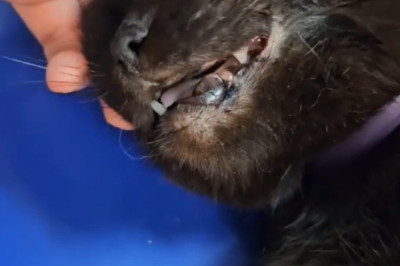Everything You Need to Know About the Mysterious Respiratory Disease Affecting Dogs
Scientists at the University of New Hampshire have made a groundbreaking discovery that may shed light on the mysterious respiratory disease plaguing dogs across the United States. Researchers believe that a novel type of bacterial infection could be responsible for the illness, which has already claimed the lives of several dogs.
The disease presents with symptoms such as persistent coughing, watery eyes, and sneezing, and has affected various dog breeds. By employing genetic sequencing on samples from infected dogs in New Hampshire, as well as Rhode Island and Massachusetts, researchers have identified a previously unknown microorganism that could be the culprit behind the illness.
Described as an "odd bacterium" by Dr. David Needle, this pathogen is smaller in size and genome, making it challenging to locate and sequence. The ability of this bacterium to evade the canine immune system adds complexity to the situation, necessitating further research to understand its behavior and characteristics.
It is crucial for pet owners to remain vigilant and seek veterinary attention if their dogs exhibit symptoms of the respiratory disease. Early detection and treatment are vital in managing the illness and improving the chances of a positive outcome. Veterinary diagnostic tests, including genetic sequencing, may be recommended to confirm the presence of this newly identified bacterium and tailor treatment accordingly.
Scientists are now focusing on studying the characteristics, transmission methods, and potential treatments for this bacterium. Understanding how it spreads and identifying effective interventions are crucial steps toward controlling and preventing the disease in dogs.
As ongoing research efforts continue, pet owners and veterinarians are encouraged to stay informed and collaborate to protect the health and well-being of our furry companions. By working together, we can develop targeted interventions and ensure the safety of beloved pets across the country.





















Comments
0 comment